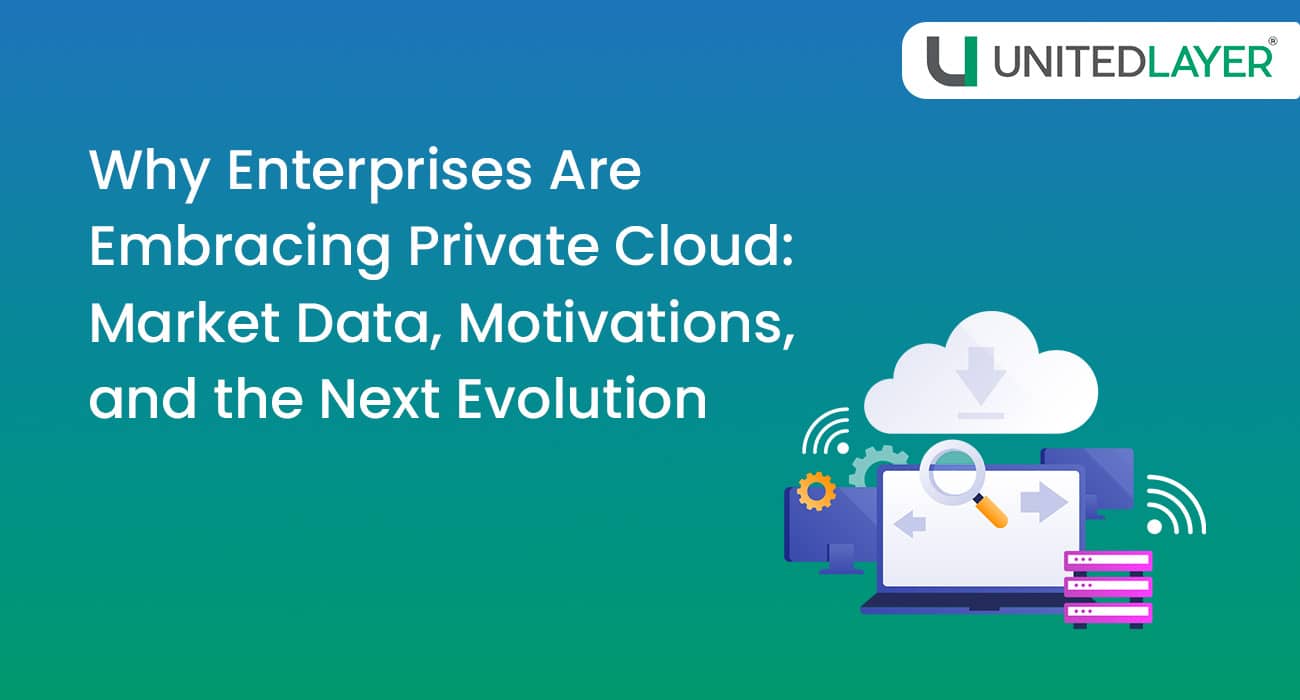
In the past decade, the cloud has become the backbone of digital transformation. Enterprises have rushed to modernize their IT, seeking agility, cost savings, and the ability to innovate faster. Yet, as cloud adoption matures, a clear trend is emerging: organizations are increasingly turning to private cloud solutions. But why is this shift happening, and what does the latest market data reveal about the motivations behind it? Let’s explore the numbers, the drivers, and how next-generation platforms like United Private Cloud and UnityOne AI are redefining what is possible.
Recent market analyses from leading firms such as Gartner, IDC, and ISG paint a compelling picture of the private cloud’s growing role in enterprise IT. According to IDC, over 94% of large enterprises (those with more than 1,000 employees) are leveraging cloud infrastructure, with 45% specifically adopting private cloud solutions. This isn’t just about moving away from legacy systems—it’s a strategic choice to blend the best of cloud with the control enterprises demand.
Hybrid and multi-cloud strategies are now the norm. Gartner reports that most enterprises are using a combination of public and private clouds, seeking the flexibility to run workloads where they make the most sense. IDC’s research further highlights that 61% of organizations prefer on-premises private clouds for AI workloads, underscoring the need for dedicated, secure environments for sensitive or high-performance applications.
The motivations behind this shift are as much about business priorities as they are about technology. Here are the top reasons, backed by recent market data:
As private cloud adoption accelerates, the bar is rising for what these platforms must deliver. It’s no longer enough to simply offer secure, scalable infrastructure. Enterprises now expect built-in intelligence—automation, analytics, and AI capabilities that drive efficiency and unlock new value.
This is where the next generation of private cloud platforms stands out. United Private Cloud, for example, is designed with embedded Generative AI capabilities. This means enterprises can harness the power of AI directly within their private cloud environment, accelerating innovation while maintaining full control over their data. From automating routine tasks to generating insights and powering new applications, Gen AI is becoming a core part of the private cloud value proposition.
Similarly, the UnityOne AI platform brings together DCIM (Data Center Infrastructure Management) and AIOps (Artificial Intelligence for IT Operations) into a unified solution. With built-in intelligence, UnityOne AI enables organizations to monitor, manage, and optimize their entire IT estate proactively. Automated anomaly detection, predictive maintenance, and intelligent capacity planning are just a few of the ways UnityOne AI helps enterprises stay ahead of the curve.
The message from the market is clear: enterprises are embracing private cloud not just for security and compliance, but for the agility and intelligence it can deliver. As digital transformation continues to accelerate, the ability to combine control with cutting-edge AI and automation will distinguish leaders from laggards.
United Private Cloud stands at the forefront of this evolution, offering a secure, scalable, and intelligent platform with built-in Generative AI. And with UnityOne AI’s advanced DCIM and AIOps capabilities, enterprises gain the operational intelligence needed to run at peak efficiency. In a world where data is the new currency and innovation is the key to competitiveness, the intelligent private cloud is not just an option—it’s the solution.